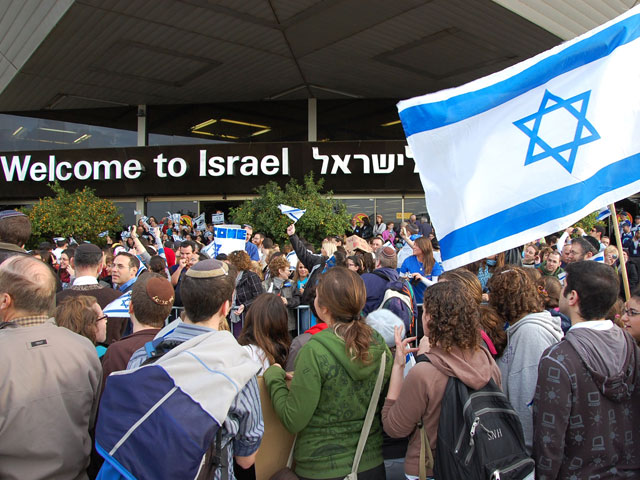The Voice of Islam often writes about the problems of the Islamic world, and sometimes some of our readers may come to the conclusion that we consider the situation of Muslims to be hopeless compared to the rest of the world. In fact, this is not the case – everything is known by comparison, and sometimes it is necessary to compare not just one indicator but several, and then it will be clear that everyone has problems.
For example, if we look at the situation in the relations between the Palestinians and Israel from the military-political point of view, it may seem that it is hopeless for them. After all, Israel is in full control of the military situation, its government rejects any political compromise, it is supported by the largest military power in the world, and the neighboring Muslim countries have been plunged into internal wars and conflicts.
But not everything is so simple. For example, we have already written about the possibility of forming a coalition government in Israel with the participation of Arab opposition forces oriented toward a peaceful solution (https://golosislama.com/news.php?id=37423). As we explained, this situation was not accidental, but the result of emerging demographic realities in Israel, including the growing role of Arab and “Russian” voters (https://golosislama.com/news.php?id=37229).
Data received at the end of last year only confirmed these assessments. For example, the Israeli Ministry of the Interior published information on the composition of the so-called “aliyah”, i.e. new immigrants who moved to this country under the Law of Return since 2012. It turned out that 86% of the “new Israelis” do not meet the canonical criteria of being Jewish. Most of the “non-Jews” or “non-canonical Jews” are arriving from post-Soviet countries – only 1 in 25 repatriates from Ukraine and 1 in 40 repatriates from Russia are exceptions to this rule. More “real Jews” arrive from the West, but even there they are a minority – only 27% of French and 30% of American repatriates.
These figures shocked Israeli society to such an extent that the Minister of the Interior, Arye Dari, said that they would be reviewed and possibly revised. But even in this case, the trend is clear – “canonical Jews” are in the minority, at least among the “new Israelis” who arrive in Israel.
What is the nature of this problem? To understand this, one must have a general understanding of the structure of Israel as a state. At its core, Israel is a secular state and has adopted the Law of Return and citizenship based on an expanded, secular understanding of Judaism. According to this law, anyone with at least one Jewish ancestor among his or her parents, grandparents, and great-grandparents, as well as his or her spouse, spouse’s relatives, and children, can consider Israel his or her “national home” and has the right to its citizenship and resettlement.
At the same time, Judaism is the state religion of Israel, specifically the so-called “Orthodox Judaism”, which deals with matters such as marriage registration and dissolution, inheritance issues, burial in cemeteries, etc., alongside other religions and their communities. Therein lies the problem, because according to the canons of “Orthodox Judaism”, only those who are born of a Jewish mother and have not publicly and officially converted to another religion, or those who have undergone the official and complex process of conversion to Judaism – giyur – are considered Jews.
Thus, it should be noted that in Israel, the state itself does not decide who is Jewish and who is not – it merely grants citizenship to a wide range of people of Jewish descent. This issue is decided by officially recognized, state-appointed rabbis, many of whom refuse to consider a significant portion of these people Jewish and require them to convert to Judaism, including studying and following its norms, which not all are willing to do.
As the number of such canonical non-Jews or non-canonical Jews grows, so does the discontent among them. As taxpayers and soldiers, they demand recognition by the state as full-fledged Jews. However, in the current structure of Israel, this is not a question for the state, but for the rabbis, since Judaism, in this understanding, is not an ethnic but a religious concept. If the state were to intervene in this matter and establish criteria for religious affiliation, it would alienate all rabbis and religious Jews. The same would happen if not only “Orthodox Jews” who adhere to such strict criteria were recognized as the official representatives of Judaism, but also “Reformists” and “Conservatives” who accept almost anyone as Jewish.
Nevertheless, it seems that with these demographic trends, Israeli society will sooner or later have to resolve this conflict, which is already breaking out in parliamentary crises. Netanyahu managed to freeze it for a while by playing on the opposition between all those who consider themselves Jewish – both religious and secular – and the Arabs. But the split in his coalition showed that the radical wings of the religious and secular Jewish camps are looking in different directions. None of them can achieve a decisive victory over their internal opponents without allying with a third force – the Israeli Arabs – for which none of them is yet ready.
Nevertheless, in the long run, it is the Arab voice that could be decisive in the clash between the two parts of Jewish society – canonical and non-canonical, religious and secular. The first would have to recognize Palestine in order to preserve its privileged position as the exclusive representative and determinant of the Jews. The second would have to agree to transform Israel into a purely civil, secular state rather than a Jewish-Judaic one.

